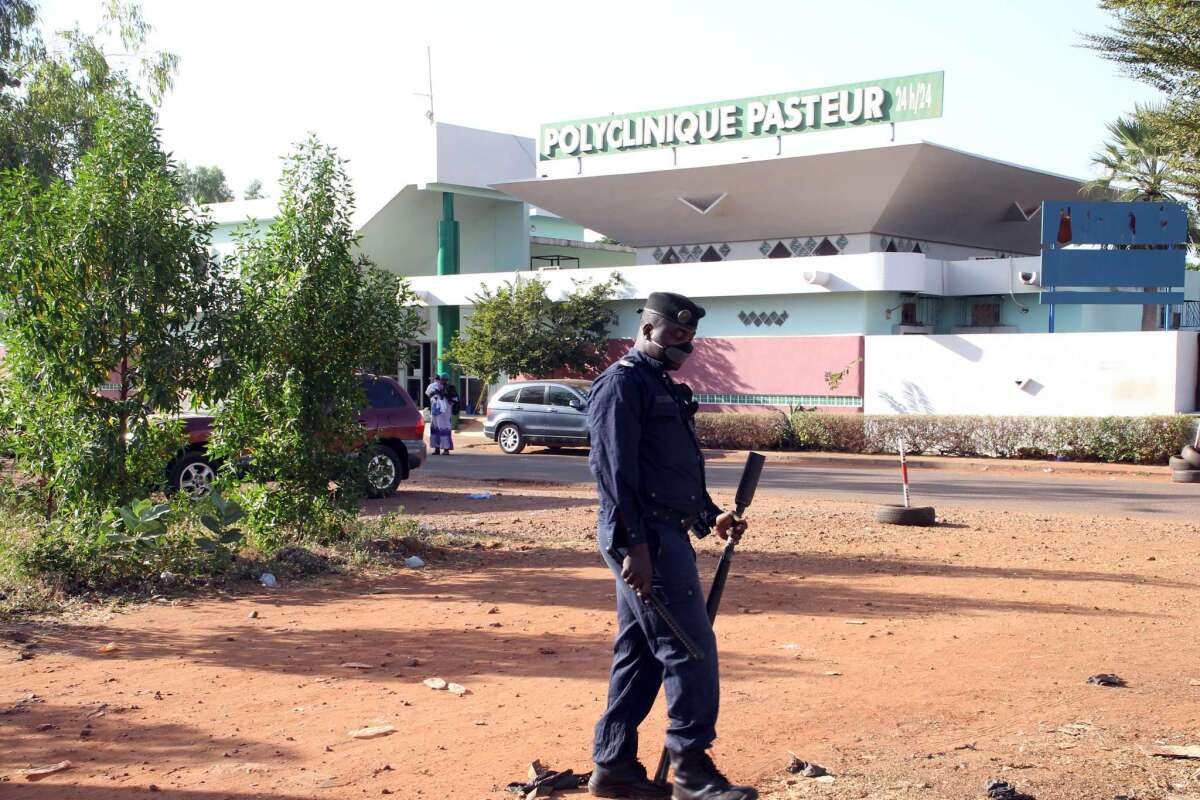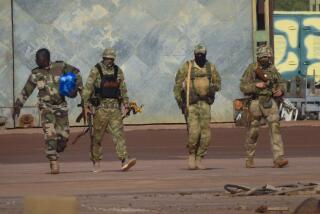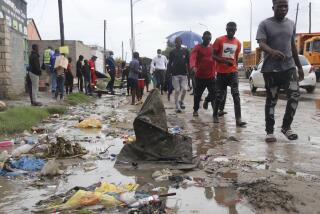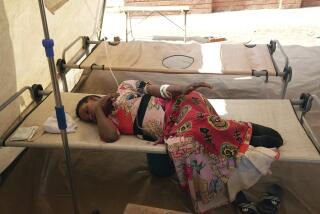Mali races to contain new Ebola outbreak as deaths worldwide top 5,000

Authorities in Mali were scrambling Wednesday to contain a new outbreak of Ebola, just as they thought they had the deadly virus under control.
More than 90 people were placed in quarantine after a 25-year-old nurse working at the privately owned Pasteur Clinic in Bamako, the West African country’s capital, fell ill and died Tuesday night, health ministry officials said. Testing conducted at a local laboratory confirmed that she had Ebola.
At least two other people are believed to have died of the virus, including a patient treated at the clinic in October and a friend who visited him there. But blood samples aren’t available from them to test for Ebola, the World Health Organization said in a statement Wednesday.
The new cases came to light as the international health body recorded another grim milestone in the Ebola outbreak: More than 5,000 people are believed to have died out of 14,000 confirmed and suspected cases. The vast majority of the cases have been in Liberia, Sierra Leone and Guinea.
The deaths in Mali are a major setback for the country, which had not reported any new Ebola cases since a 2-year-old girl from neighboring Guinea was diagnosed in the western city of Kayes and died Oct. 24. Authorities identified 108 people who had contact with the girl, but none have developed symptoms of Ebola.
The new cluster could be more threatening, because of the time it took to identify the first cases and the number of people who may have come into contact with them.
The patient treated at the Pasteur Clinic in October was a 70-year-old grand imam from Guinea, where the current outbreak started in December. Because of his religious stature, his body was transported to a mosque in Bamako for a ritual washing ceremony and then returned to his native village, Kouremale, for burial after his death on Oct. 27.
Such traditional funeral rights have been a major source of transmission of Ebola, which is spread through contact with infected bodily fluids. The bodies of Ebola victims are especially infectious, according to health authorities.
The imam was suffering from kidney failure, a common complication in late-stage Ebola, when he was admitted on Oct. 25 to the Pasteur Clinic, which has no connection to the Pasteur Institute in Paris or its international network. But while numerous tests were conducted, Ebola was not one of them, according to the WHO.
He fell ill on Oct. 17 and was admitted the following day to a private clinic in the Guinean mining town of Siguiri, near the country’s border with Mali, the WHO said. When his condition did not improve, he was transferred to another clinic across the border, then traveled by car with four family members to seek care at the Pasteur Clinic.
The imam’s first wife, who was in the car with him, died of an undiagnosed disease on Nov. 6., as did his daughter on Monday. The other people in the car — the imam’s brother, second wife and a son — are receiving treatment at an Ebola unit in Gueckedou, Guinea.
The son has tested positive for Ebola, increasing the likelihood that the other deaths in the family were caused by the virus, the WHO said.
Authorities in both countries are trying to trace the people who had contact with the victims and will monitor them, in case they also develop symptoms.
Those quarantined in Guinea include staff members and patients at the Pasteur Clinic, which has been placed under lockdown, according to local news reports. Several of the patients are troops serving in the United Nations peacekeeping mission in Mali, who were being treated for injuries, the force said in a statement.
The other clinic where the imam was treated, the mosque where his body was washed and the compound where the nurse lived have also been placed under quarantine.
The WHO expressed confidence Wednesday that Mali would be able to bring the outbreak under control, saying the country “is well-rehearsed in the emergency measures that need to be taken to hopefully hold the number of additional cases to a small number.”
But it could be only a matter of time before another Ebola patient arrives from Guinea. There is frequent travel between the two countries, which share a 500-mile border.
For more international news, follow @alexzavis on Twitter
More to Read
Start your day right
Sign up for Essential California for news, features and recommendations from the L.A. Times and beyond in your inbox six days a week.
You may occasionally receive promotional content from the Los Angeles Times.







